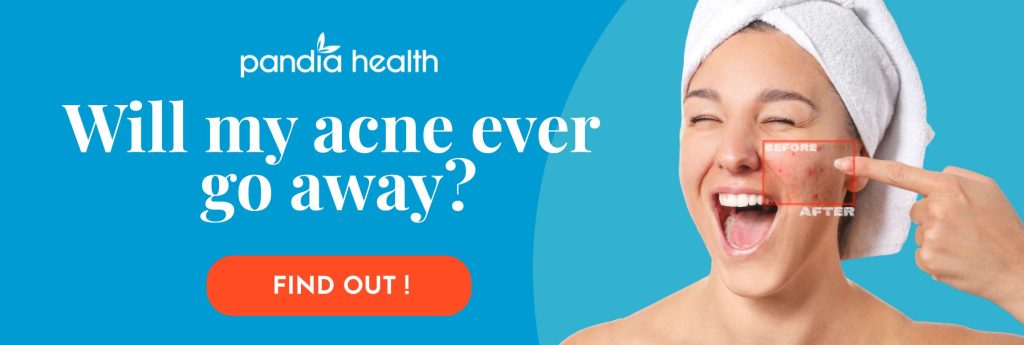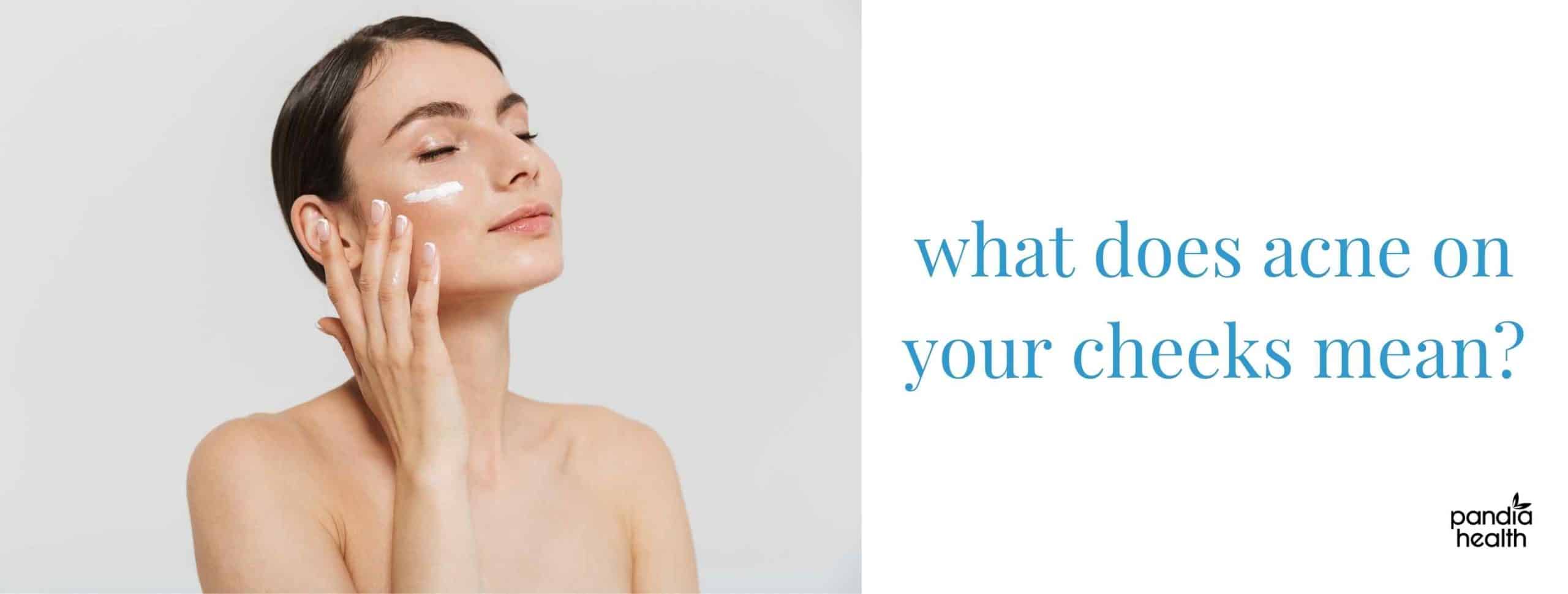Medically reviewed by Sophia Yen, MD, MPH – Written by Mary Francis Garcia
Having acne in one of the most obvious places (your face) is not ideal in any situation. Thankfully, there are simple methods that can be incorporated into your daily life to reduce the severity and keep your skin looking and feeling great.
What is cheek acne?
Cheek acne is exactly what it sounds like: acne that appears on your cheeks. Acne is a blanket term for the small bumps that can appear on your skin as a result of hair follicles becoming clogged with oil and dead skin cells. They may appear in the form of blackheads, whiteheads, and/or pimples.
Face mapping, an ancient Chinese and Ayurvedic technique associates acne placement on your face with different outcomes. While acne may not be indicative of all health and lifestyle factors, it can provide some insight. For instance, having acne on your cheeks may be a sign of poor hygiene (i.e. not changing your pillowcase or cleaning your makeup brushes). With that being said, face mapping should be taken with a grain of salt, as acne often has numerous causes regardless of where it appears on your skin.

Image source: https://www.stylecraze.com/articles/acne-face-map/
What causes cheek acne?
Cheek acne may be due to one or more of the following: makeup, your phone spreading bacteria, dirty pillowcases, touching your face, or hormonal changes. The good news is there are several steps you can take to prevent it or reduce the severity of your cheek acne. See a doctor to get your acne treated.
Let’s take a deeper look into those causes:
Your phone spreading bacteria
Your phone spends time in many different places, which ultimately leads to the collection of bacteria. While this alone is not a big deal, it becomes a potential issue when we touch our phone and then touch our face or worse, put our phone directly up to our ear. Unless you’re disinfecting your phone screen 24/7, it’s likely that at least some bacteria is getting transferred to your face. This could in turn lead to clogged pores, which ultimately causes or worsens acne.

Dirty pillowcases & sheets
Pillowcases and sheets collect bacteria even though they typically remain in one place. Furthermore, it’s possible to irritate your skin while sleeping, especially if you constantly rub your face against the pillow—it happens to the best of us!
Touching your face
It’s impossible to go about your day without touching different surfaces—your keyboard, steering wheel, credit card… and that’s just to name a few. And while it might sound like an easy task to avoid touching your face, it’s not always possible. The transfer of oil and bacteria from your hands to your face can create new blemishes or worsen existing acne.
Poor skincare routine
What we put into our body can greatly impact how we look and feel. More specifically, using skincare products that contain harsh chemicals or even rubbing your face too hard can lead to irritation on your skin. On the other hand, not washing your face enough can be problematic, as oil and bacteria build up in the pores, which can lead to acne if not removed.
Hormonal changes
There are hormones in your body called androgens, which fluctuate quite a bit (especially for women). The release of androgens stimulates the sebaceous glands, causing the production of sebum (oil). Oily skin can lead to acne, as it’s a perfect environment for bacteria growth.
How to prevent acne on your cheeks?
Thankfully, there are several steps that can be taken to reduce the severity of acne or prevent it altogether. In order to keep your skin healthy, try the following tips:
Wipe down your phone before each use
While this may seem like a hassle, disinfecting your phone screen (especially before putting it up to your face) can reduce your risk of developing acne. The cleaner your phone screen, the less likely you are to transfer bacteria to your face.
Don’t bring your phone with you to the bathroom
It’s no secret that the bathroom is one of the germiest places. Between flushing the toilet and touching the faucet, your hands come into contact with many potentially bacteria-filled surfaces. Furthermore, it’s a good idea to leave your phone out of the bathroom or keep it in a closed bag if need be.
Swap out your pillowcase at least once a week
Even if you go to bed with a clean face, it’s impossible to keep bacteria from getting on the pillowcase and eventually transferring to your skin. If washing your pillowcase weekly isn’t feasible, keep an extra on hand to swap out.
Wash your hands regularly
In general, washing your hands usually can’t hurt. This prevents the spread of germs not only to your face, but also to surfaces you touch. Make sure to use soap, as water alone is not as effective at killing bacteria.
Adjust your skincare routine
Some skincare products can irritate the skin. If you notice that your current routine is causing discomfort or simply not working, switch it up. While you typically can’t go wrong with gentle, unscented soap and warm water, you may need additional treatment if your acne is severe. In this case, it’s necessary to consult a doctor, so they can assist you in finding a routine that best meets your needs.
Talk to your doctor about birth control
Birth control alone should not be used for acne treatment, but it may help clear up your skin when used in combination with other treatments.
How can Pandia Health help?
Speaking of acne treatment, birth control may be a solution, as it reduces the hormone fluctuations often associated with breakouts. And that’s where we come in!
Pandia Health is the ONLY women-led, doctor-led birth control delivery service in the US. Individuals who live in select states can schedule an online consultation with one of our expert doctors – they can help you find a birth control method that best suits your lifestyle. *Note we only prescribe the pill, patch, and ring.
We also deliver to all 50 states, so once you’re set with a prescription, sign up for our service to get your pill shipped right to your mailbox (with on-time deliveries, automatic refills, & fun goodies). Get that #PandiaPeaceOfMind by joining our community of people with uteri who are empowered to take charge of our reproductive health.
Disclaimer: The above information is for general informational purposes only and is NOT a substitute for professional medical advice. Always seek the advice of your doctor or healthcare provider before starting or changing acne treatment.


